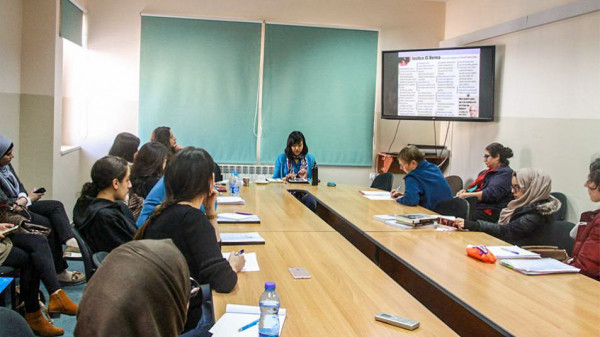Professor Interprets Women’s Relationship with the Law in India
November 28, 2017

The Institute of Women's Studies at Birzeit University organized a lecture entitled “Feminist Engagements with the Law: Reflections from India,” presented by the Assistant Professor in the Centre for Women’s Studies at Jawaharlal Nehru University Dr. Papori Bora on November 28, 2017.
The lecture charted the history of feminism in India from the colonial period all the way to the current parliamentary democratic republic, “Feminists have always had a complicated relationship with the law which began in the colonial period. The ban on Sati by Lord William Bentinck was the first of these engagements, and little by little, women became the ground on which battles were waged between the nationalists and the colonialists,” said Dr. Bora.
By the time a women’s movement was birthed, it had inherited a political context in which women’s rights were mediated through the community, “In the post-colonial period, the ideas of chastity and honor were formulated as protections for women through the mediation of the community; a form of protection outside the purview of the state’s laws and provisions,” added the Assistant Professor.
“While the Indian legislature did issue and amend sexual violence laws in the wake of sexual violations – the Mathura rape case and the 2012 Delhi rape case, for instance,” said D. Bora, “the laws were still passed through a patriarchal legislature which believed in the paradigm of marriage and disregarded the bodily integrity of young Indians.”
“Historically, issues of sexual violence have been the trigger event around which women collectively rallied and engaged with the law. The 2012 protests, for example, helped mobilize feminists and young people around the middle-class origins of the victim. While the case garnered worldwide media coverage and prompted the government to amend rape laws, there were cases of sexual violence that went unannounced or unreported because of the lower-class origins of their victims,” concluded Dr. Bora.
A discussion between the attendees and Dr. Bora followed the lecture in which they exchanged views and explored the relationships between women’s rights, sexual protection laws, and power dynamics.

